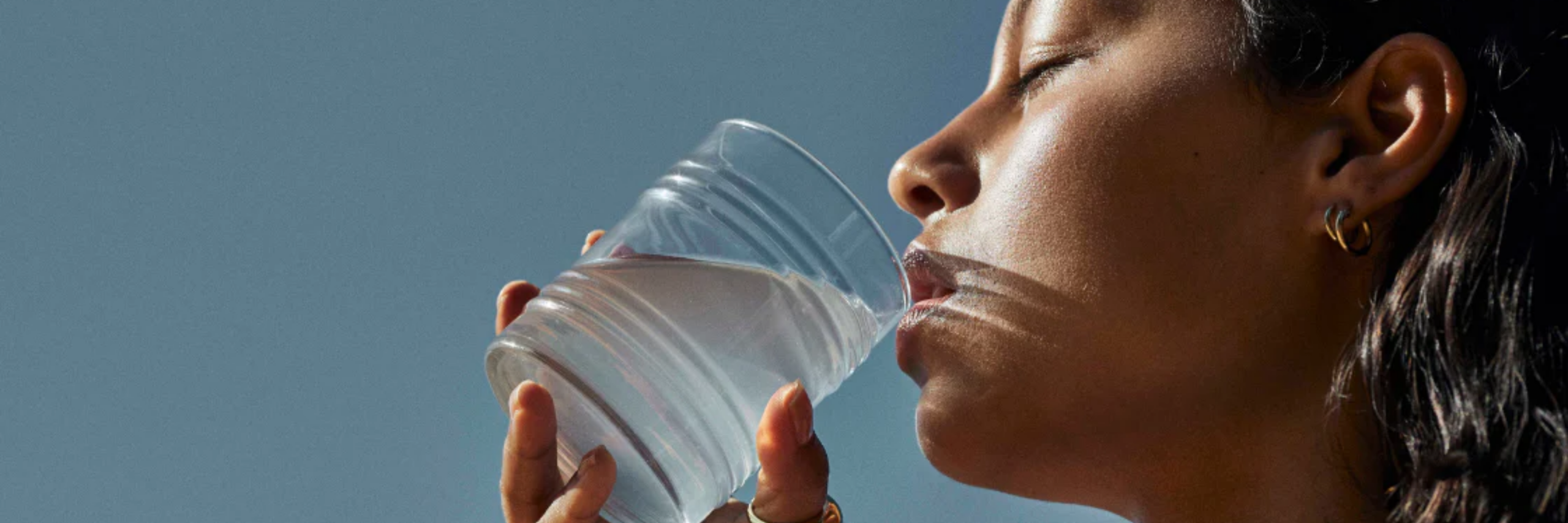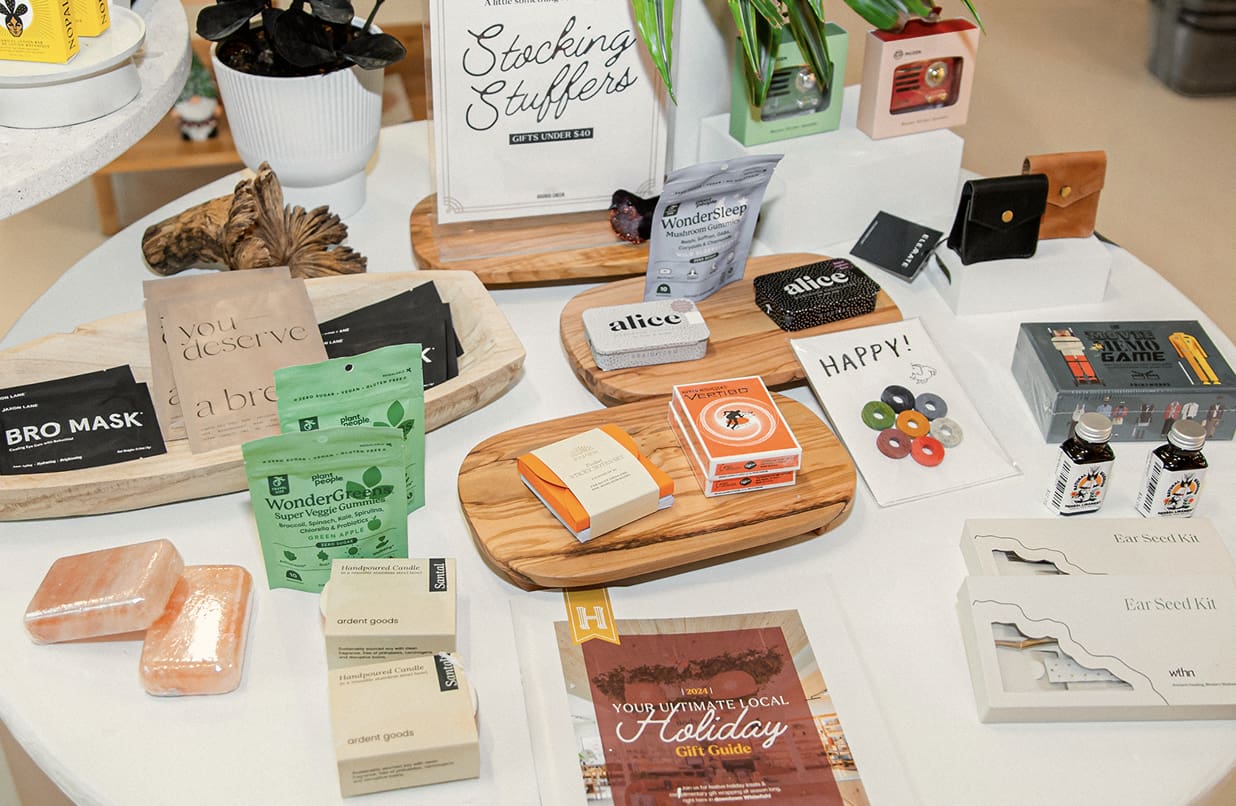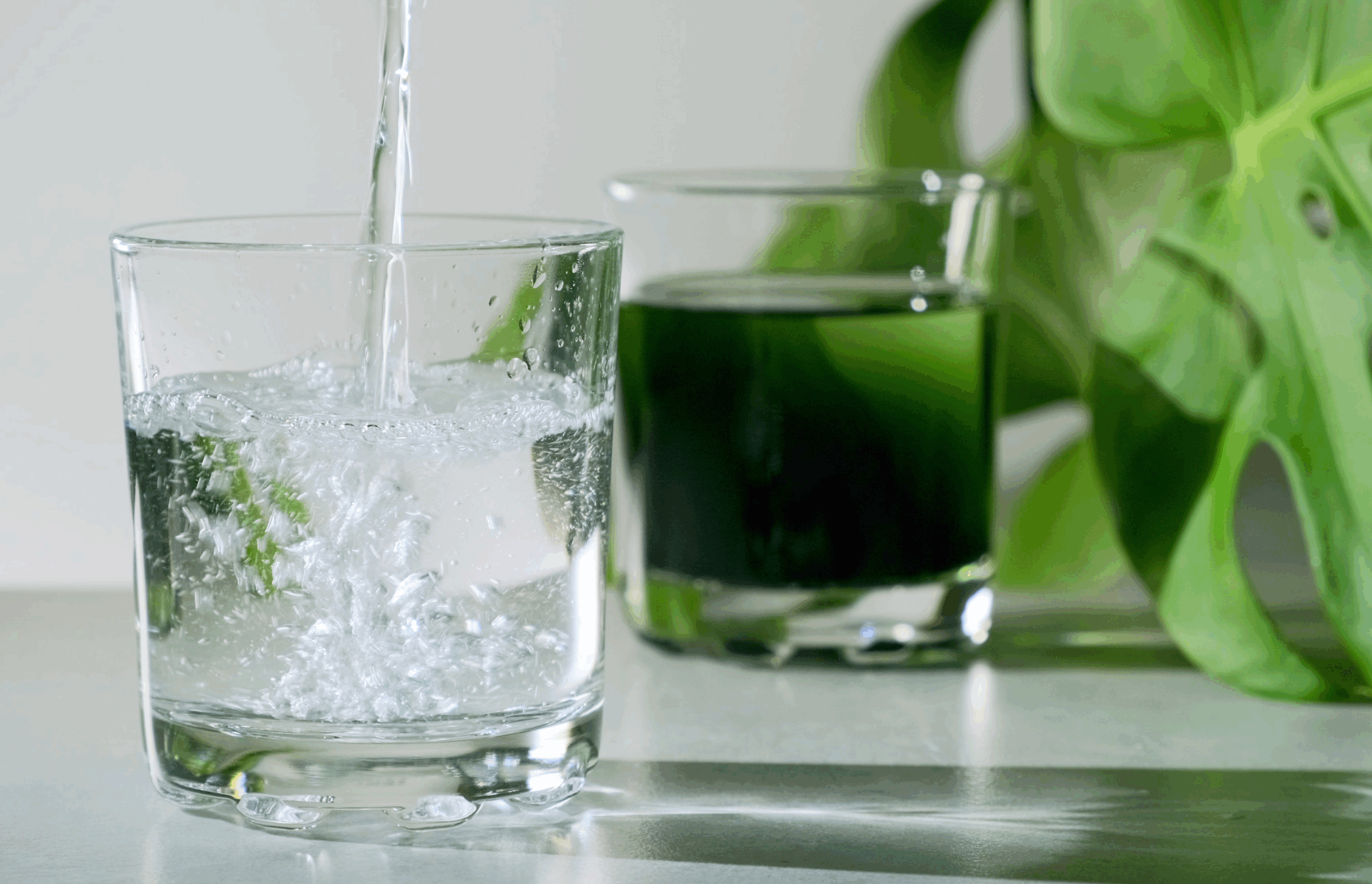Collagen 101: What it is, Why it Matters, How to Support it

Collagen is having a moment, and for good reason. As our body’s most abundant protein it’s not just about looking younger (frozen face is so 2024 😉). From skin elasticity, to joint strength, to gut health, collagen plays a key role in how we age and feel. But with all the noise out there surrounding collagen, it’s hard to know where to start. That’s what this article is all about. Think of it like your collagen 101 primer. What is it, why do we lose it, and can we really get it back?
Let’s dive in…
Want to dive right into product selection? Save this for reference for the next time you're shopping in Haskill Creek
The Science-y Stuff (painless I promise)
Every part of your body is made up of cells. And inside those cells is a powerful combination of components that keep your body functioning properly. One of the most important parts of this cellular magic is protein.
Proteins provide the tools and “glue” that help build cells, repair cells and hold them together. Each protein is a custom built chain from precise combinations of 20 amino acids. And the amino acid sequence determines the function, from enzymes and hormones, to hair and muscle fibers.
Of the 20 amino acids your body uses to build proteins, nine are called essential, and the remaining eleven are called non-essential.
-
Essential proteins: you must get them with food
-
Non-essential proteins: your body can (usually) make them on its own
Sometimes though – especially during times of stress, injury, or aging – your body may not be able to produce enough non-essential amino acids. When this happens you need to get them through food or supplementation to stay strong, heal properly and keep your body running at its peak.
So, What is Collagen & Why Do We Lose It?
Collagen is the most abundant protein in your body, accounting for about 30% of your total protein content! It’s built primarily from the non-essential amino acids glycine, proline, and the essential amino acid, lysine.
Quick Note: Vitamin C is also critical to the collagen production process. While it doesn’t make up the collagen protein itself, it’s essential for helping your body build it and hold the protein together properly.
Collagen's job is to provide structure, strength, and flexibility throughout the body. Its fiber-like structure is a major component of your body’s connective tissue, the scaffolding that holds your skin, bones, muscles, tendons, and cartilage together. It’s what helps tissues stay strong, stretchable, and resilient.
Collagen is found in:
● Skin: A major component of the skin, providing its strength and elasticity.
● Bones: Provides the framework for bone strength and structure.
● Muscles: Helps connect and support muscle tissue.
● Tendons and Ligaments: Provides flexibility and strength, for movement and stability.
● Joints: A key component of cartilage, which cushions the joints to allow for smooth movement.
● Blood Vessels: Collagen provides structure and support to blood vessels.
● Digestive System: Collagen plays a role in the integrity and structure of the digestive tract.
There are five main collagen types, with type I & III being the most common. This will be important to remember when we talk about supplementation later.
● Type I: Makes up 90% of your body’s collagen. Found in skin, bones, tendons, and ligaments.
● Type II: Found in elastic cartilage (joints).
● Type III: Found in arteries, organs, and muscles.
● Type IV: Found in the layers of your skin.
● Type V: Found in your eyes, hair, and placenta.
Up until your late 20s, your body generally produces enough collagen to meet its needs. But as part of the natural aging process, your collagen production slows by about 1% per year (and even faster post-menopause for women 😭). That’s when your non-essential collagen-building amino acids become “conditionally essential”. In other words, your body still makes them, just not in the amounts you need to maintain smooth joints, bouncy skin, and strong connective tissues.
Enter diet and supplementation.
By providing your body with collagen-rich foods, collagen peptides, and key nutrients like vitamin C, zinc, and copper, you give it the tools to keep building (and maintaining) collagen. While you can’t fully recover lost collagen, this approach slows down collagen loss, and in many cases, can even stimulate new collagen production in the skin, joints and gut.
Quick Note: There’s also the FDA-approved injectable path, like Sculptra. This might be able to get you closer to full recovery, but cost, comfort and safety are major factors to consider.
Top Three Factors to Slow Collagen Loss
Diet and supplementation are two critical factors that can slow, and even reverse some collagen loss. But your habits also play a major role. Let's take a deeper look at all three.
1) Watch Your Daily Habits
Here are the key habits to watch out for. aging any help in its natural progression towards reduced collagen, try to avoid or minimize the following:
-
Smoking: Damages collagen and elastin, slows wound healing, and reduces blood flow to the skin. (🔗)
-
Too much sugar: Sugar binds to collagen, making it weak and brittle — leading to wrinkles and stiffness. (🔗)
-
UV exposure: Too much sunlight reduces collagen production and causes collagen to break down more rapidly. (🔗)
-
Poor sleep & stress: Raise cortisol levels, which break down collagen and slow repair. (🔗, 🔗)
-
Alcohol & inflammation: Dehydrate skin, trigger oxidative stress, and reduce collagen synthesis.
-
Nutrient deficiencies: Lack of vitamin C, zinc, or copper makes it harder for your body to build and maintain collagen. (🔗)
-
Dehydration – Reduces cell function and nutrient delivery, making it harder for your body to build or repair collagen. (🔗)
While it's hard to eliminate all seven habits, all the time, you can work on minimizing them to slow your collagen loss. Avoid smoking, limit sugar and processed food, wear sunscreen (SPF 30+)… you get it.
Quick Note: Unfortunately, Autoimmune diseases such as rheumatoid arthritis and lupus as well as genetic mutations such as Ehlers-Danlos syndrome can also damage collagen production.
#2) Eat Collagen Rich Foods
Can you eat your way to more collagen? Sort of. Collagen-rich foods (like bone broth and chicken skin) won’t directly increase collagen levels, but they give your body the amino acids (remember glycine, proline, and lysine) it needs to make collagen! Here’s a list of collagen rich foods to consider adding to your diet:
-
Bone Broth (Type I, II, III): Simmered animal bones and connective tissue; rich in easily absorbed gelatin and amino acids.
-
Try at Haskill: Kroma’s selection of amazing broths
-
-
Fish & Shellfish (Type I): Wild-caught white fish like cod and halibut; sardines with skin and bones for a practical boost.
-
Chicken (Type II): Chicken skin, thighs, wings, and cartilage—great for joints.
-
Beef (Type I & III): Cuts with connective tissue like short ribs or slow-cooked stew meat.
-
Egg Whites: High in proline to support collagen production; enjoy scrambled, boiled, or poached.
-
Citrus Fruits: Packed with vitamin C to help build collagen; think oranges and grapefruit.
-
Berries: Rich in vitamin C and antioxidants that protect and stimulate collagen production.
-
Garlic: Contains sulfur and taurine to support and preserve collagen structure.
-
Dairy (Milk, Cheese, Yogurt): Provides proline and glycine, key collagen-building amino acids.
-
Cashews: Deliver copper and zinc—two essential minerals for collagen development.
-
Pork Rinds (Type I): Natural collagen source from pig skin; opt for baked versions when possible.
-
Oysters: High in zinc and amino acids (glycine & proline); support collagen creation and skin healing.
#3: Increase Three Key Nutrients
Your probably noticing a trend by now. These three nutrients play a key role in collagen production in your body. Optimizing for them through diet, and possible supplementation (see below) are a good way to boost collagen production.
-
Vitamin C – Enables your body to convert amino acids (proline and lysine) into their active forms, which are needed to build and stabilize collagen (🔗).
-
Zinc – Supports the enzymes that help build collagen and plays a role in cell repair and regeneration. (🔗)
-
Copper – Activates enzymes involved in forming strong, cross-linked collagen fibers for durable connective tissue. (🔗)
How Haskill Creek Can Help Through Supplementation
While whole foods can be an excellent way to support your body’s natural collagen production, you might choose to add supplementation to your routine. This is especially true if you want to better monitor your nutrient intake or aren’t confident you’re getting enough through food alone to meet your body’s needs.
But not all supplements are created equal. Here’s what we look for when choosing the best collagen support at our Haskill Creek store in downtown Whitefish:
What to Look For in a Quality Collagen Supplement:
-
Hydrolyzed Collagen (Collagen Peptides): The collagen has been broken down into smaller amino acid chains for easier digestion and absorption.
-
Type-Specific Collagen: Look for Type I & III for skin and hair, Type II for joint support, and multi-type blends for full-body benefits.
-
Testing (Third Party and Certificates of Analysis (COAs): Supplements should be tested for purity, potency, and heavy metals — (e.g. NSF Certified for Sport, Good Manufacturing Process (cGMP) verified, Independent Lab Tests)
-
Clean Ingredients: No added sugar, artificial flavors, or unnecessary fillers, especially if you’re mixing into drinks or taking daily.
-
Sourcing Transparency: Look for brands that disclose whether their collagen comes from grass-fed bovine, wild-caught fish, or cage-free chicken.
-
Added Support Nutrients: Bonus points for vitamin C, zinc, copper, hyaluronic acid, or other ingredients that support collagen synthesis and skin hydration.
The Haskill Difference: We’ve Done the Work for You
It’s normal to feel a bit overwhelmed when searching for a high quality supplement, especially collagen! But don’t worry, the team at Haskill Creek has already done the hard work for you. After countless hours of researching, testing, and evaluating, we’ve handpicked the best collagen supplements on the market.
Every collagen brand we carry at Haskill is tested for quality, made with thoughtful sourcing practices, and selected to support a range of needs, whether you're an athlete, aging gracefully, or simply looking to improve skin, joints, and overall vitality.
Collagen Supplements
-
Thorne Collagen Plus: Great for skin and aging support (includes nicotinamide riboside + ceramides)
-
Thorne Collagen Fit: Formulated for athletic recovery, joints, and performance Momentous Collagen Peptides: Highly bioavailable, performance-focused
-
Truvani Collagen Peptides: Organic, clean label, minimal ingredients
-
Ancient Nutrition Multi Collagen Protein: Includes five collagen types from four food sources, with vitamin C + probiotics
Collagen Support Supplements:
-
Thorne Lysine: Plays a key role in collagen formation by helping your body absorb calcium and form the cross-links that stabilize collagen structure.
-
Thorne Vitamin C with Flavonoids: Supports collagen production and protects it from damage with added antioxidant power.
-
Thorne Zinc Picolinate/Bisgyclinate: supports general wellness, promotes healthy connective tissue, and helps maintain healthy eye and reproductive health
-
Moon Juice Collagen Protect: A vegan creamer formulated with hyaluronic acid, silver ear mushroom, and tocos to hydrate skin and preserve natural collagen.
-
Moon Juice Super Beauty: A high-potency antioxidant formula that supports collagen production, skin elasticity, and cellular protection from aging.
Need Help Choosing? Download our quick charts to match your goals with the right supplement and/or skincare product.
What about skincare?
Skincare products can also be beneficial in helping to minimize collagen loss. I plan to write more about this very topic in a later post, but in the meantime, here are a few ingredients to look for:
-
Peptides – Signal your skin to produce more collagen, improving firmness and elasticity.
-
Retinoids (like Retinol) – Stimulate collagen synthesis and accelerate cell turnover.
-
Vitamin C – Essential for collagen formation and helps protect existing collagen from free radical damage.
Final Note
You can’t stop the aging process. But, with the right knowledge and support you can make it a lot more tolerable, even empowering. Collagen especially can help you feel better, move more freely, and even glow a little more.
If you ever have questions about Collagen and supplementation, we encourage you to stop by the Haskill Creek store in Whitefish, Montana and talk to our amazing team. We’re here to help you make confident, well-informed choices for your health and wellness.
Looking for a collagen-boosting wellness boost? Stop by our partner, BusyBee IV Therapy and Wellness and ask for the QueenBee IV – It delivers targeted cellular support and deep nourishment to promote collagen production, enhance radiance, and combat the effects of stress, aging, and fatigue. With key nutrients like biotin, vitamin C, B complex, and glutathione, this formula is designed to strengthen hair, skin, and nails while supporting detoxification and overall vitality.

Sign up for our newsletter!
Join to get the Haskill Newsletter and be the first to learn about new products, events, and other goings-on at Haskill Creek!









